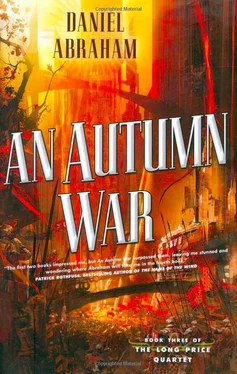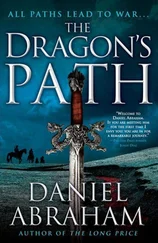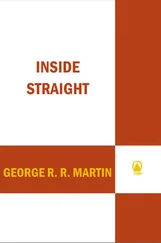Daniel Abraham - Autumn War
Здесь есть возможность читать онлайн «Daniel Abraham - Autumn War» весь текст электронной книги совершенно бесплатно (целиком полную версию без сокращений). В некоторых случаях можно слушать аудио, скачать через торрент в формате fb2 и присутствует краткое содержание. Жанр: Фэнтези, на английском языке. Описание произведения, (предисловие) а так же отзывы посетителей доступны на портале библиотеки ЛибКат.
- Название:Autumn War
- Автор:
- Жанр:
- Год:неизвестен
- ISBN:нет данных
- Рейтинг книги:4 / 5. Голосов: 1
-
Избранное:Добавить в избранное
- Отзывы:
-
Ваша оценка:
- 80
- 1
- 2
- 3
- 4
- 5
Autumn War: краткое содержание, описание и аннотация
Предлагаем к чтению аннотацию, описание, краткое содержание или предисловие (зависит от того, что написал сам автор книги «Autumn War»). Если вы не нашли необходимую информацию о книге — напишите в комментариях, мы постараемся отыскать её.
Autumn War — читать онлайн бесплатно полную книгу (весь текст) целиком
Ниже представлен текст книги, разбитый по страницам. Система сохранения места последней прочитанной страницы, позволяет с удобством читать онлайн бесплатно книгу «Autumn War», без необходимости каждый раз заново искать на чём Вы остановились. Поставьте закладку, и сможете в любой момент перейти на страницу, на которой закончили чтение.
Интервал:
Закладка:
The sun was near the top of its arc, the remains of breakfast in lacquered boxes with their lids shut, the day half gone. Liat was right, of course. He hadn't been sleeping near enough-late to bed, waking early, and with troubled rest between. He could feel it in his neck and hack and see it in the slowness with which his vision cleared.
"Where's F, iah got to?" he asked.
"Back to her place with the physicians, I'd guess. I offered to wake you so that she could say her good-byes, but she thought it would be better if you slept." Liat smiled. "She said it would be restorative. Can you imagine her using that kind of language a season ago? She already sounds like a physician's apprentice."
Maati grinned. He'd resisted the idea of this little outing at first, but Cehmai had joined F, iah's cause. A half-day's effort by a rested man might do better for them than the whole day by someone drunk with exhaustion and despair. And even now the library seemed to call to him-the scrolls he had already read, the codices laid out and put away and pulled out to look over again, the wax tablets with their notes cut into them and smoothed clear again. And in the end, he had never been able to refuse Eiah. Her good opinion was too precious and too fickle.
Liat slid her hand around his arm and leaned against him. She smelled of grass and cherry paste on apples and musk. He turned without thinking and kissed the crown of her head as if it were something he had always done. As if there had not been a lifetime between the days when they had first been lovers and now.
"How badly is it going?" she asked.
"Not well. We have a start, but Cehmai's notes are only beginnings. And they were done by a student. I'm sure they all seemed terribly deep and insightful when he was still fresh from the school. But there's less there than I'd hoped. And…"
"And?"
Maati sighed. The towers were visible now. The blades of grass stood out one from another.
"He's not a great inventor," Maati said. "He never was. It's part of why he was chosen to take over an andat that had already been captured instead of binding something new. And I'm no better."
"You were chosen for the same thing."
"Cehmai's clever. I'm clever too, if it comes to that, but we're the second pressing. There's no one we can talk with who's seen a binding through from first principles to a completion. We need someone whose mind's sharper than ours."
There were birds wheeling about the towers-tiny specks of black and gray and white wheeling though the air as if a single mind drove them. Maati pretended he could hear their calls.
"Perhaps you could train someone. "There's a whole city to choose from."
"There isn't time," Maati said. He wanted to say that even if there were, he wouldn't. The andat were too powerful, too dangerous to be given to anyone whose heart wasn't strong or whose conscience couldn't be trusted. That was the lesson, after all, that had driven his own life and Cehmai's and the Dai-kvo himself. It was what elevated each of the poets from boy children cast out by their parents to the most honored men in the world. And yet, if there were someone bright enough to hand the power to, he suspected he would. If it brought the army back from the field and put the world back the way it had been, the risk would be worth it.
"Maybe one of the other poets will come," Liat said, but her voice had gone thin and weary.
"You don't have hope for the Dai-kvo?"
Liat smiled.
"Hope? Yes, I have hope. Just not faith. The Galts know what's in play. If we don't recapture the andat, the cities will all fall. If we do, we'll destroy Galt and everyone in her. "They'll be as ruthless as we will."
"And Otah-kvo? Nayiit?"
Liat's gaze met his, and he nodded. The knot in her chest, he was certain, was much like his own.
"They'll be fine," Liat said, her tone asking for her own belief in the words as much as his. "It's always the footmen who die in battles, isn't it? The generals all live. And he'll keep Nayiit safe. He said he would."
"They might not even see battle. If they arrive before the Galts and come back quickly enough, we might not lose a single man."
"And the moon may come down and get itself trapped in a teabowl," Liat said. "But it would be nice, wouldn't it? For us, I mean. Not so much for the Galts."
"You care what happens to them?"
"Is that wrong?" Liat asked.
"You're the one who came to Otah-kvo asking that they all be killed."
"I suppose I did, didn't I? I don't know what's changed. Something to do with having my boy out there, I suppose. Slaughtering a nation isn't so much to think about. It's when I start feeling that it all goes confused. I wonder why we do it. I wonder why they do. Do you think if we gave them our gold and our silver and swore we would never hind a fresh andat… do you think they'd let our children live?"
It took a few breaths to realize that Liat was actually waiting for his answer, and several more before he knew what he believed.
"No," Maati said. "I don't think they would."
"Neither do I. But it would he good, wouldn't it? A world where it wasn't a choice of our children or theirs."
"It would be better than this one."
As if by common consent, they changed the subject, talking of food and the change of seasons, Eiah's new half-apprenticeship with the physicians and the small doings of the women of the utkhaiem now that their men had gone. It was only reluctantly that Maati rose. The sun was two and a half hands past where it had been when he woke, the shadows growing oblong. They walked back to the library, hand in hand at first, and then only walking beside each other. Nlaati felt his heart growing heavier as they came down the familiar paths, paving stones turning to sand turning to crushed white gravel bright as snow.
"You could come in," Nlaati said when they reached the wide front doors.
In answer, she kissed him lightly on the mouth, gave his hand a gentle squeeze, and turned away. Maati sighed and turned to lumber up the steps. Inside, Cehmai was sitting on a low couch, three scrolls spread out before him.
"I think I've found something," Cehmai said. "There's reference in Nlanat-kvo's notes to a grammatic schema called threefold significance. If we have something that talks about that, perhaps we can find a way to shift the binding from one kind of significance to another."
"We don't," Nlaati said. "And if I recall correctly, the three significators all require unity. "There's not a way to pick between them."
"Well. "Then we're still stuck."
"Yes."
Cehmai stood and stretched, the popping of his spine audible from across the wide room.
"We need someone who knows this better than we do," Maati said as he lowered himself onto a carved wooden chair. "We need the Daikvo."
"We don't have him."
"I know it."
"So we have to keep trying," Cehmai said. "The better prepared we are when the Dai-kvo comes, the better he'll he able to guide us."
"And if he never comes?"
"He will," Cehmai said. "He has to."
16
"Yes," Nayiit said. "That's him."
Otah's mount whickered beneath him as he looked up at the Dal-kvo's body. It had been tied to a stake at the entrance to his high offices; the man had been dead for days. The brown-robed corpses of the poets lay at his feet, stacked like cordwood.
They had taken it all as granted. The andat, the poets, the continuity of one generation following upon another as they always had. It grew more difficult, yes. An andat would escape and for a time and the city it had left would suffer, yes. They had not conceived that everything might end. Otah looked at the slaughtered poets, and he saw the world he had known.
The morning after the battle had been tense. He had risen before dawn and paced through the camps. Several of the scouts vanished, and at first there was no way to know whether they had been captured by the Galts or killed or if they had simply taken their horses, set their eyes on the horizon, and fled. It was only when the reports began to filter back that the shape of things came clear.
Читать дальшеИнтервал:
Закладка:
Похожие книги на «Autumn War»
Представляем Вашему вниманию похожие книги на «Autumn War» списком для выбора. Мы отобрали схожую по названию и смыслу литературу в надежде предоставить читателям больше вариантов отыскать новые, интересные, ещё непрочитанные произведения.
Обсуждение, отзывы о книге «Autumn War» и просто собственные мнения читателей. Оставьте ваши комментарии, напишите, что Вы думаете о произведении, его смысле или главных героях. Укажите что конкретно понравилось, а что нет, и почему Вы так считаете.










